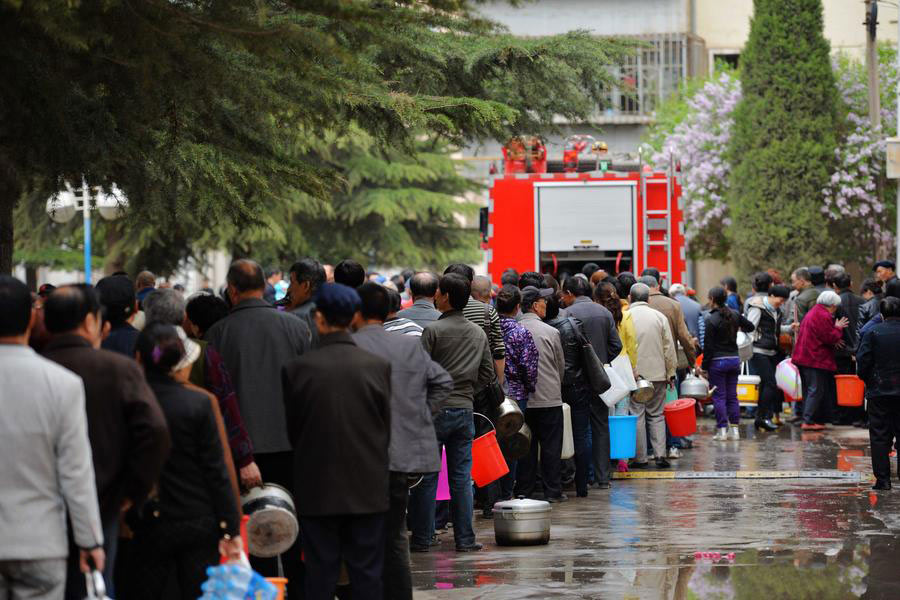|
 Residents queue up to get safe water supplied by the government in Lanzhou, Gansu province on Friday after the city's tap water was found to be polluted by benzene, a toxic cancer-causing chemical. [Photo/Xinhua] |
Authorities in Lanzhou, capital of northwest China's Gansu Province, worked all-out Friday night to fight tap water contamination, hoping to resume water safety Saturday.
Excessive levels of benzene were reported in Lanzhou's tap water Friday morning. The city government warned citizens not to drink tap water for 24 hours until 11 a.m. Saturday.
Lanzhou's water works repeatedly washed its filter system to clean up pollutant Friday night, and kept water cycling to cleanse the urban tap water pipeline,
As of 12:45 a.m., no more benzene was found in four tests on samples taken from two downtown surveillance sites in Chengguan and Qilihe districts, the city government said in a press release early Saturday.
Traces of benzene, however, were still found in water samples taken in the outer Xigu and Anning districts. "These are believed to be remnant pollutant washed down from the filter system," the document said.
It did not say when exactly the tap water would be safe for drinking again.
The contamination caused panic among the citizens Friday. All stores and supermarkets ran out of bottled water supplies, and many people complained they were dying of thirst.
Fire engines and water sprinklers carried water to downtown communities for emergency supplies, and residents were busy fetching water with pots, basins and buckets until after midnight.
Tests from Thursday evening to early Friday morning found between 118 micrograms and 200 micrograms of benzene per liter at Lanzhou's water plant, according to Veolia Water, a Sino-French joint venture and the sole water supplier for the city proper.
The benzene levels were far in excess of the 10 micrograms per liter national limit.
The local government is investigating the source of the contamination. Sources with Veolia told Xinhua Friday they believed the benzene came from chemical waste, but refused to single out any particular plant.
They ruled out possibility that the Yellow River, the original source of the water, was polluted.
Benzene is a colorless carcinogen used to manufacture plastics. Excessive inhalation of and contact with benzene could damage the human hematopoietic system, which is responsible for the production of blood.
|
|
|
|
|
|
|
|